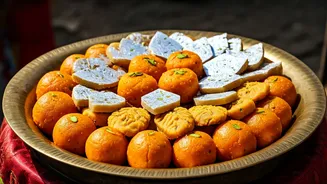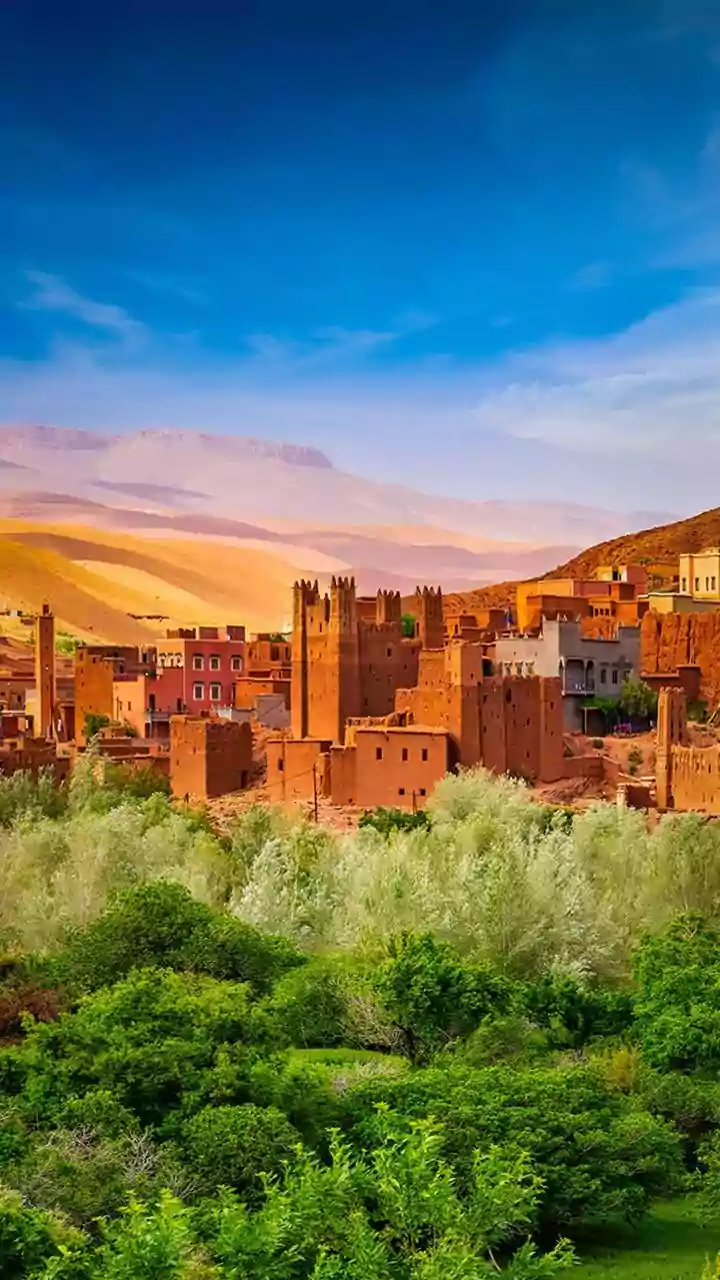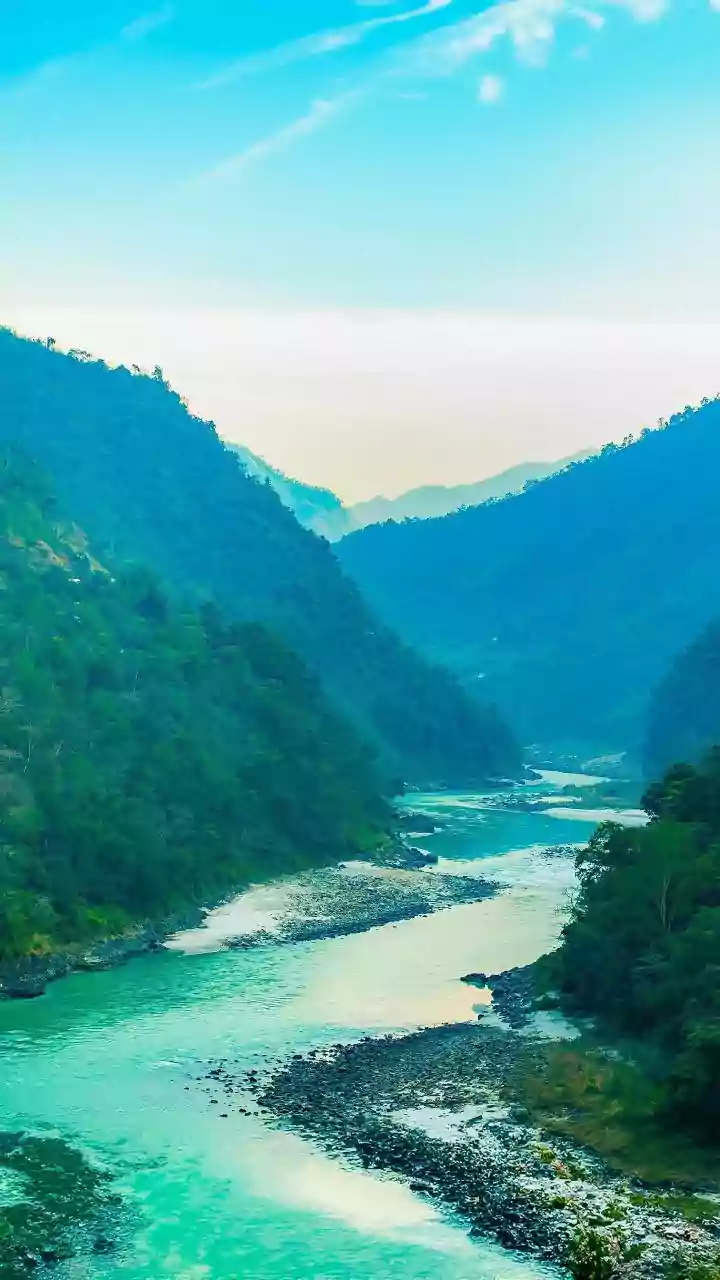Origins and History
The Pushkar Mela's history is deeply woven into the fabric of Rajasthan. Its roots lie in the ancient trading practices and religious significance associated
with the holy city of Pushkar. Historically, the Mela served as a crucial marketplace for livestock, particularly camels, attracting traders from across the region. Over time, the event has evolved, blending its commercial function with vibrant cultural and spiritual activities. The Mela is also closely associated with the legend of Brahma, as Pushkar is believed to be one of the few places in the world where a temple dedicated to the Hindu creator god is found. The fair draws large crowds, including locals, pilgrims, and tourists from around the globe, each drawn to the unique blend of commerce, spirituality, and culture that defines the Pushkar Mela.
Spiritual Significance
Pushkar is considered one of the holiest cities in Hinduism, and the Pushkar Mela is deeply intertwined with its spiritual importance. The Pushkar Lake, believed to be sacred, is central to the fair's spiritual activities. Pilgrims from all over India and abroad come to take a dip in the lake, believing it can cleanse them of their sins. The Brahma Temple, one of the primary attractions, draws devotees who come to offer prayers and participate in rituals. The Mela therefore becomes a significant spiritual gathering, filled with chanting, prayers, and devotional practices. The fair period witnesses numerous religious ceremonies, including aarti (ritual worship) and other offerings, which reflect the deep-rooted faith and traditions of the local community. For many, the Pushkar Mela is a pilgrimage as much as a festival, a journey of faith as well as a cultural experience.
Key Attractions and Events
The Pushkar Mela offers a variety of attractions that cater to diverse interests. The camel and livestock trading is a major highlight, with vendors and buyers from various regions converging to trade in camels, horses, and other animals. Cultural performances, including traditional Rajasthani music and dance, provide a captivating spectacle. Competitions such as camel races and beauty contests add to the festive atmosphere. The Mela also features a vibrant marketplace where visitors can find handicrafts, textiles, jewelry, and other souvenirs. Food stalls offer a taste of local cuisine, adding to the sensory experience. Various religious activities and ceremonies, including the ceremonial bathing in Pushkar Lake, are an essential part of the fair, making it a rich cultural experience.
What to Expect
The Pushkar Mela is a sensory experience that combines bustling energy with moments of profound spirituality. Expect large crowds, especially during peak days, and a vibrant atmosphere filled with music, colors, and aromas. The climate is typically dry and hot, and packing light, breathable clothing is advisable. Bargaining is common in the marketplace, and it's essential to negotiate prices. Visitors should also be mindful of their belongings, as large crowds can create opportunities for petty theft. Staying hydrated and being aware of food hygiene are crucial for health. The Mela also provides an opportunity to interact with people from diverse backgrounds, fostering a cultural exchange. Being open to new experiences and respectful of local customs will allow visitors to fully embrace the spirit of the Pushkar Mela.
Accommodation and Travel
Planning your trip to the Pushkar Mela requires careful consideration of accommodation and travel arrangements. Pushkar offers a range of lodging options, from budget-friendly guesthouses to luxury hotels. Booking accommodation in advance, especially during the peak season, is highly recommended to secure the desired stay. Travel options to Pushkar include flights to Jaipur International Airport, followed by a taxi or bus ride. Alternatively, trains run to Ajmer, which is close to Pushkar, and then local transportation can be utilized. Getting around Pushkar involves walking, auto-rickshaws, or taxis. Public transport, while available, may be crowded. Therefore, making travel arrangements in advance will help to ensure a smoother experience.
Tips for Visitors
To fully enjoy the Pushkar Mela, some practical tips can enhance the experience. Pack essentials such as sunscreen, hats, and comfortable walking shoes. Carry a first-aid kit, as medical facilities can be crowded. Learn a few basic phrases in Hindi or Rajasthani to facilitate communication with locals. Be prepared for the presence of animals, as camels and livestock are part of the daily environment. Respect the local customs and traditions, including dressing modestly when visiting religious sites. Keeping copies of important documents and informing friends or family about travel plans are advisable safety measures. Engaging with locals can provide valuable insights into the culture. Staying flexible and adaptable will allow visitors to make the most of the unpredictable nature of the Mela.






















